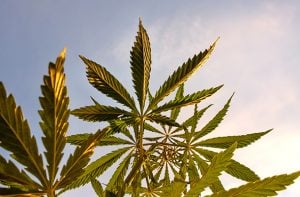
In response to the devastating economic impact of the coronavirus pandemic, Congress came to the rescue of American businesses, small and large, by approving an estimated $2 trillion stimulus package, known as the Coronavirus Aid, Relief, and Economic Security Act. The CARES Act, in part, prescribes $349 billion in small business loans to help American companies stay afloat during this economic crisis.
In addition to enacting the CARES Act, President Donald Trump signed into law the Coronavirus Preparedness and Response Supplemental Appropriations Act, which contains a $20 million grant to the Small Business Administration Disaster Relief Fund to provide additional low-interest loans to companies affected by COVID-19.
Like most other American businesses, cannabis companies are struggling with major economic setbacks, yet they are denied tapping into these SBA loans on the basis of their federal legality and their ability to comply with “all applicable federal laws and regulations.”
The cannabis industry includes both hemp and marijuana businesses. Hemp became legal upon the enactment of the Agriculture Improvement Act of 2018 (better known as the 2018 Farm Bill), which expressly removed the agricultural crop from the definition of marijuana under the Controlled Substances Act (CSA). Although heavily regulated, hemp is no longer controlled in the classic sense. Marijuana, on the other hand, remains a Schedule I substance under the CSA, which means the cultivation, manufacture, distribution, and possession of the plant is illegal under federal law. Therefore, while qualified hemp businesses are entitled to the same stimulus relief as businesses in most other industries, marijuana businesses are not.
In a statement released shortly after the enactment of the CARES Act and of the Coronavirus Preparedness and Response Supplemental Appropriations Act, SBA spokesperson Carol Chastang explained:
Because federal law prohibits the sale and distribution of cannabis, the SBA does not provide financial assistance to businesses that are illegal under federal law. […] Businesses that aren’t eligible include marijuana growers and dispensers, businesses that sell cannabis products, etc., even if the business is legal under local or state law.
This is not a new SBA position. In a 2018 Police Notice, the SBA explained that neither “Direct Marijuana Businesses” nor “Indirect Marijuana Businesses” are eligible for SBA-funded assistance.
More recently, the SBA released the 2019 Information Notice, in which it further clarified that cannabis businesses are not entitled to receiving money appropriated for disaster relief because the CSA continues to prohibit the sale, manufacture, distribution, and possession of marijuana.
Although the 2019 Information Notice continues to expressly exclude direct and indirect marijuana businesses from the loan assistance programs, it provides that hemp companies that “develop or market CBD and CBD products derived from hemp would not be considered Direct Marijuana Businesses [… and] would be eligible to participate in SBA technical assistance programs, if the business and its products are legal under state law and comply with all applicable federal, state, and local laws and regulations.” (Emphasis added).
Therefore, many companies engaged in the manufacture, distribution, sale, and marketing of hemp-derived products, including cannabidiol (CBD)-infused products, would also be ineligible for these loans. As I wrote in this column, the FDA, which holds authority over hemp CBD foods, dietary supplements, cosmetics, and tobacco products, in accordance with the 2018 Farm Bill, deems the sale and marketing of most of these products unlawful under the Food, Drug and Cosmetics Act. Moreover, despite the adoption of many state-level hemp CBD regulations, the FDA has yet to adopt a formal legal pathway for those products, leaving the industry largely unregulated, faced with a patchwork of conflicting rules and regulations, and, thus, generally unable to comply with “all applicable federal, state, and local laws and regulations.”
As of January 2020, the cannabis industry was employing over 240,000 full-time workers across 34 states and the District of Columbia, making it one of the greatest job-creation machines in the country. Moreover, cannabis companies are required, under federal law, to comply with numerous COVID-19 measures, such as paid sick leave coverage. In light of this, the ineligibility of many cannabis companies for SBA loans seems particularly inequitable. Unless the federal government revisits its current policies and lifts the inconsistent and unfair restrictions on the cannabis industry, marijuana and hemp CBD companies, along with the American workforce they support, will be left in the weeds.
Nathalie Bougenies practices in the Portland office of Harris Bricken and was named a “2019 Rising Star” by Super Lawyers Magazine, an honor bestowed on only 2.5% of eligible Oregon attorneys. Nathalie’s practice focuses on the regulatory framework of hemp-derived CBD (“hemp CBD”) products. She is an authority on FDA enforcement, Food, Drug & Cosmetic Act and other laws and regulations surrounding hemp and hemp CBD products. She also advises domestic and international clients on the sale, distribution, marketing, labeling, importation and exportation of these products. Nathalie frequently speaks on these issues and has made national media appearances, including on NPR’s Marketplace. Nathalie is also a regular contributor to her firm’s Canna Law Blog.

